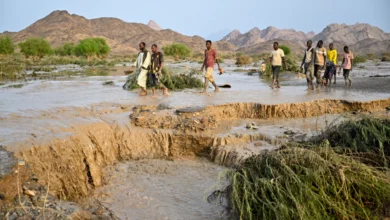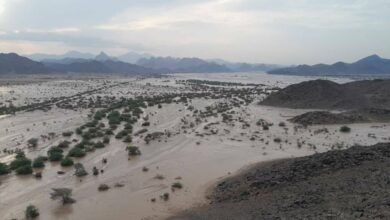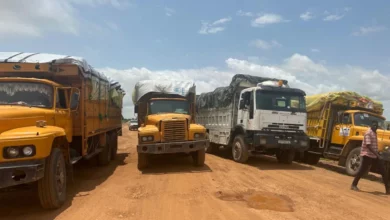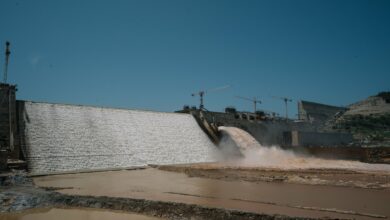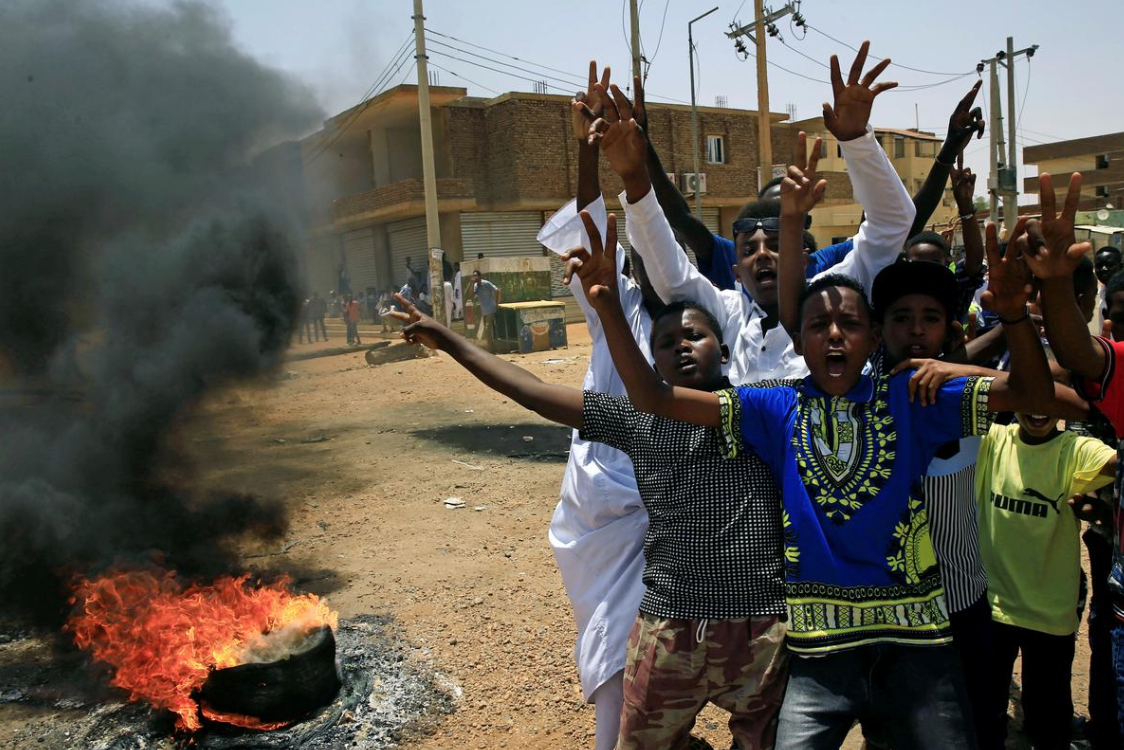
KHARTOUM (Reuters) – During the chaos of a deadly raid on Sudanese protesters at a pro-democracy sit-in in Khartoum on Monday, a man grimaced in pain as doctors sewed his ear back together with no anesthetic.
He tried to help the man beside him, another victim of the worst violence since army officers toppled President Omar Hassan al-Bashir on April 11.
Sudanese medics linked to the opposition said on Wednesday that the death toll from the violence has risen to more than 100, after 40 bodies were recovered from the Nile in Khartoum. Official death toll figures have not been released.
“He didn’t flinch once because he was holding hands with a guy who was getting a bullet taken out of his calf and that guy was in pain,” said a young medical student who treated the two men and many others.
“He was shouting, screaming, passing out. Everyone was trying to calm him down so this guy was holding his hand, trying to steady him.”
The medical student asked to remain anonymous for fear of reprisals. Reuters could not independently verify his account of the crackdown.
Monday’s operation, when security forces stormed a protest camp outside the Ministry of Defence, was a major setback in efforts to create a democracy and rebuild a country plagued by rebellions, economic crises and international isolation caused by Bashir’s policies.
Talks between the Transitional Military Council (TMC), which has ruled Sudan since Bashir was overthrown, and the opposition have ground to a halt amid deep differences over who should lead a three-year transition to democracy.
The head of the TMC said on Wednesday the council was open to negotiations without conditions.
DAWN ASSAULT
The medical student and a university student who took part in the sit-in said a large number of the paramilitary Rapid Support Forces (RSF) led the dawn assault.
The RSF, commanded by TMC deputy head General Mohamed Hamdan Dagalo, commonly known as Hemedti, were accused by human rights groups of genocide during the war against rebels that began in Darfur in 2003.
Bashir’s government denied allegations that the Arab Janjaweed militias, later transformed into the RSF, had burned villages and raped and executed civilians.
The medical student first realized there was trouble at a barrier just outside the camp at 5 a.m. He heard bullets and saw people dropping as they ran towards him. He ran to a clinic at the sit-in.
“People were vomiting blood, choking on their own blood, drowning in it actually,” he said.
He and some doctors treated one man with a fractured skull. Brain tissue was spilling out, he said.
“He was punching and kicking. It took around five fully fit men just to hold him down while we stitched him, with barely any anesthesia of any kind,” the student said. Most of the soldiers were young. “They didn’t look like they had any military training of any kind,” he said.
The RSF could not be reached for comment, but Hemedti, in comments to RSF members carried on state TV, said: “We issued a decision today to investigate fairly and transparently what happened at the sit-in.”
In a statement, the military council said the RSF had a strong track record of defending Sudan against terrorism, and said an organized social media campaign since Monday’s violence was aimed at “spreading lies” and “fabricating charges”.
The TMC said some RSF members were attacked and people had put on their uniforms to impersonate them.
The RSF lacks the discipline of Sudan’s regular army but has played a vital role in strengthening the position of its new military leaders.
The paramilitary force has also helped Saudi Arabia and the UAE in Yemen’s civil war. Not long after the coup, those two oil powers pledged billions of dollars in support to Sudan.
CLINIC
The medical student received a phone call from a friend two hours after the trouble began. In the middle of that conversation, security forces opened fire on a clinic, he said.
Those inside had barricaded the building with a huge metal door, which was broken open by security forces.
“They broke the door down and started shooting. Everyone lay down on the ground, there were bullet holes across the clinic,” said the medical student.
After the shooting stopped a doctor came out with his hands in the air and said it was a clinic where patients were being treated.
“Even some of your soldiers are wounded and we have to treat them as well,” the student quoted the doctor as saying. “He convinced them and they stopped shooting.”
Sudan’s main opposition group has called for an international inquiry into what it calls a massacre. TMC head Lieutenant General Abdel Fattah al-Burhan said he regretted the violence and it would be investigated.
The medical student and a friend took a patient to a hospital outside the protest camp. The patient was bleeding from his head.
“I was holding the patient’s head, trying to stop the blood from spilling too much,” the student said.
All around him were RSF members who were taunting him and others.
“We would say: ‘If we don’t get him to a hospital he will die’,” he said. “And they would say ‘he can die, so what if he dies’.”
A young university student, who also asked to remain anonymous, corroborated the medical student’s account of the shootings.
At first, about 30 RSF fighters entered the sit-in site. Then large numbers arrived and they swelled to over 1,000. Security forces were whipping people with rubber hoses and long wooden sticks, and kicking them, he said.
“People were dropping all around me after they were shot. Some people fled into buildings. The security forces followed them in and attacked them,” the university student said.
“I was almost shot. While all of this was happening I could see snipers stationed on several rooftops keeping an eye on everything.”
Reporting by Michael Georgy in Khartoum; Editing by Giles Elgood and Matthew Lewis

